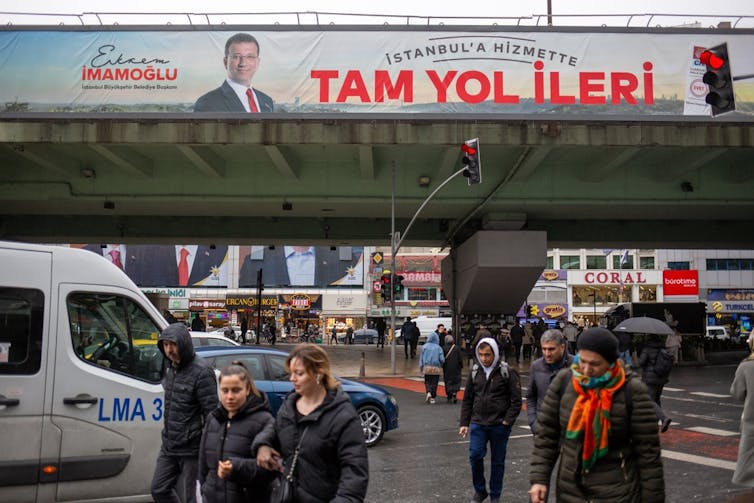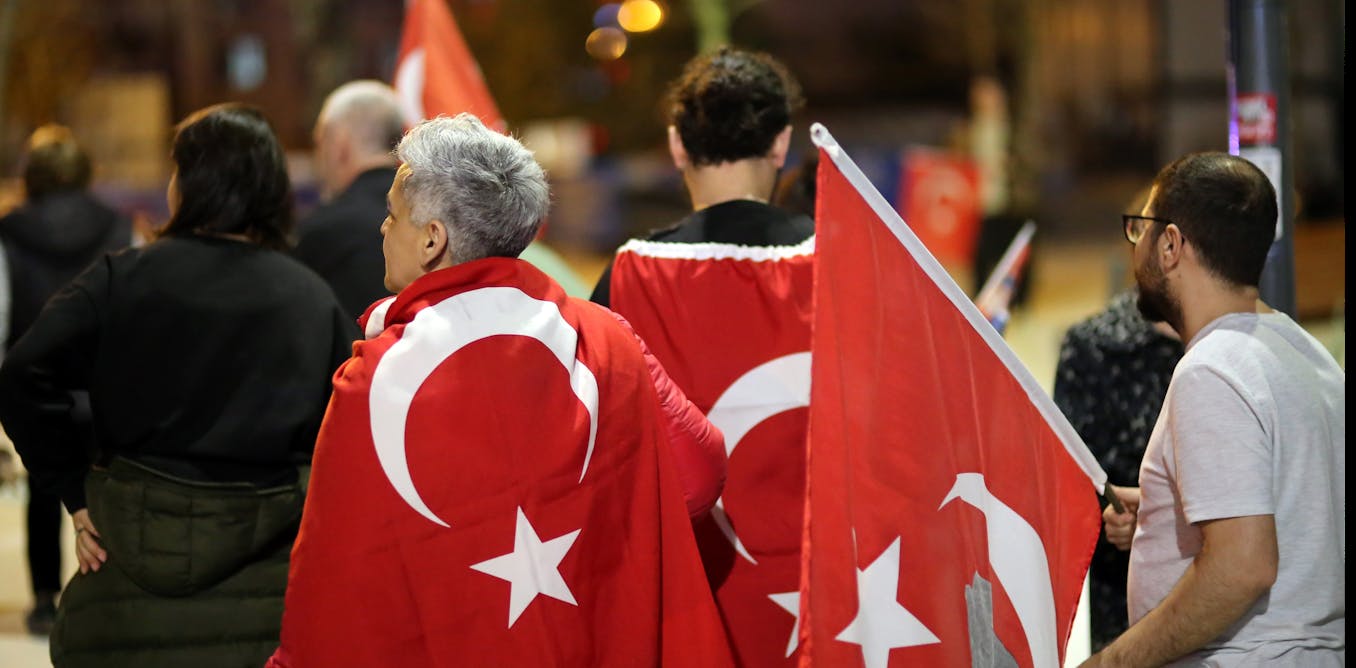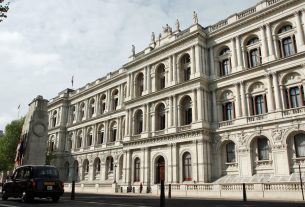Turkey is home to over 4 million refugees, who are often maligned, scapegoated or caught in the middle of political debates, both domestically and in negotiations with the EU.
Turkey has not always been so hostile to displaced people, nor have they always been mere political bargaining chips. In the early 2010s, I personally experienced how the country allowed in hundreds of thousands of Syrians fleeing Bashar al-Assad’s killing machine.
From 2011 to 2015, cities like Gaziantep, Istanbul, and Antakya served as safe logistical hubs for hundreds of Syrian activists and organisations, whose work remains central today in seeking justice for human rights violations and war crimes worldwide.
Yet by the end of 2015 this situation had dramatically deteriorated, partially due the concurrence of three major events: Russian involvement in the Syrian war (meaning more refugees); the signing of the EU-Turkey deal in March 2016 (producing a wall and visa restrictions); and the July 2016 coup attempt (meaning more authoritarian and securitised government in Turkey).
Turkey’s local elections on 31 March saw opposition party CHP make unprecedented gains. This shock result has raised the question of whether electoral politics can restore some dignity to one of the world’s largest refugee populations, whose fate is invariably tied to wider democratisation efforts within Turkey.
Refugees and Turkish politics
Most mainstream Turkish political parties agree that the “solution” to the presence of refugees in Turkey is returning them to their countries of origin, differing only in terms of when and how this return should happen. President Recep Tayyip Erdoğan, of the ruling AK Party, has long vowed to send back up to one million Syrian refugees to what he calls “safe zones” within Syria. Likewise, in 2023, the CHP candidate Kemal Kılıçdaroğlu said that if elected, he would send all Syrian refugees back within two years.
The vilification of refugees dominated both the CHP’s and, to a lesser extent, the AKP’s national campaigns in 2023. This was mainly thanks to the anti-immigration far-right ATA Alliance – the kingmaker with a decisive vote share of 5% – which turned refugees into the number one issue in the presidential runoff.
Though only a year later, refugees were remarkably absent from the 2024 local elections.
This may be due to the national government’s harsh ongoing immigration practices, which include forced returns, arbitrary detentions and violent border enforcement. These practices had already led to a fall in the number of Syrian refugees (by far the largest cohort) arriving in Turkey, leaving little room for anti-immigration narratives to be leveraged by the opposition.
In addition, a deteriorating economy caused by the government’s recent U-turn from its unorthodox policy to one of tight austerity, as well as unfulfilled promises to build homes in earthquake affected areas, have taken precedence over the issue of refugees for many voters.
Alfa Net/Shutterstock
Elections in Turkey
Elections in Turkey are neither free nor fair: the balance is tipped firmly in favour of Erdoğan and the AK Party, which has ruled for 22 years at present. Elections are, however, competitive, in that both incumbent and opposition parties are theoretically able to win, and genuinely campaign and strive to do so.
While Erdoğan was narrowly re-elected in the 2023 national polls, the opposition victory in the March 2024 local elections has revived hopes that political change can still be achieved through electoral means.

tolga ildun/Shutterstock
Despite its autocratic government, research suggests that municipalities in Turkey can act as enclaves for democratic change. In particular, local elections in the city of Istanbul often have symbolic, demographic and economic gravity that can shape the politics of the whole country.
Much of the opposition’s victory in March was due to the strong performance of the CHP’s charismatic incumbent mayor of Istanbul, Ekrem İmamoğlu. İmamoğlu, who centred his campaign primarily on democratisation, has even claimed that Istanbul under his rule is now a beacon of hope and democracy for Turkey, and the world at large.
Could the CHP renew Turkey’s democracy?
The CHP is a broad-spectrum political party that includes both openly anti-immigrant figures like Tanju Özcan, the mayor of Bolu, and more refugee-friendly mayors like Tunç Soyer, the mayor of Izmir.
The party entered the 2024 local elections with a large number of female candidates and a union between the newly elected CHP chairman Özgür Özel and Ekrem İmamoğlu (both presenting themselves as proponents of democracy), which was instrumental in the opposition’s victory. In a speech at a Socialist International event in February, Özel talked up his party’s solidarity and democratic policies, and called for a fight against the rise of the far right across the world.
Both Özel and İmamoğlu have taken opportunities to show public solidarity with marginalised people: when Turkish authorities tried to disallow Kurdish DEM candidate Abdullah Zeydan’s electoral victory as mayor of Van, both politicians came out in clear support of him. Such actions have caused the CHP’s centre of gravity to shift, if only a little, away from the right.
Provided there is no call for early elections, the CHP will have until 2028 to build on its current promises and launch democratisation efforts that can incorporate left-leaning parties like the DEM Party, which holds 10% of the national vote share.
However, it is not yet clear how far the CHP’s democratic narrative can reach. Could it stop at a merely exclusive democracy that excludes non-citizen groups like refugees? Until refugees voluntarily return to their countries of origin (which is currently not foreseeable), how will the CHP handle their prolonged presence? Could the refugee-friendly stance of its potential allies and other small parties influence the CHP’s position on migration? These are difficult questions that the CHP needs to answer, both internally and nationally.
Year of Elections
2024 will see an unprecedented number of important elections worldwide. The EU elections next June are probably the most relevant for forced migration in Turkey, and by outsourcing border control, the EU has arguably contributed to xenophobia against refugees in Turkey.
The predicted right-wing surge in EU elections will likely impact Turkey, not only affecting its government but also its opposition: the CHP and DEM are associated members of the Party of European Socialists. Time will tell whether the current democratic shift in Turkey will be immune to another episode of underhanded migration bargaining by the EU.
Despite its authoritarian leadership, a key aspect of Turkey’s politics remains true: they are dynamic. The prospect of an inclusive democratisation process that can restore some dignity to refugees is far from impossible.



